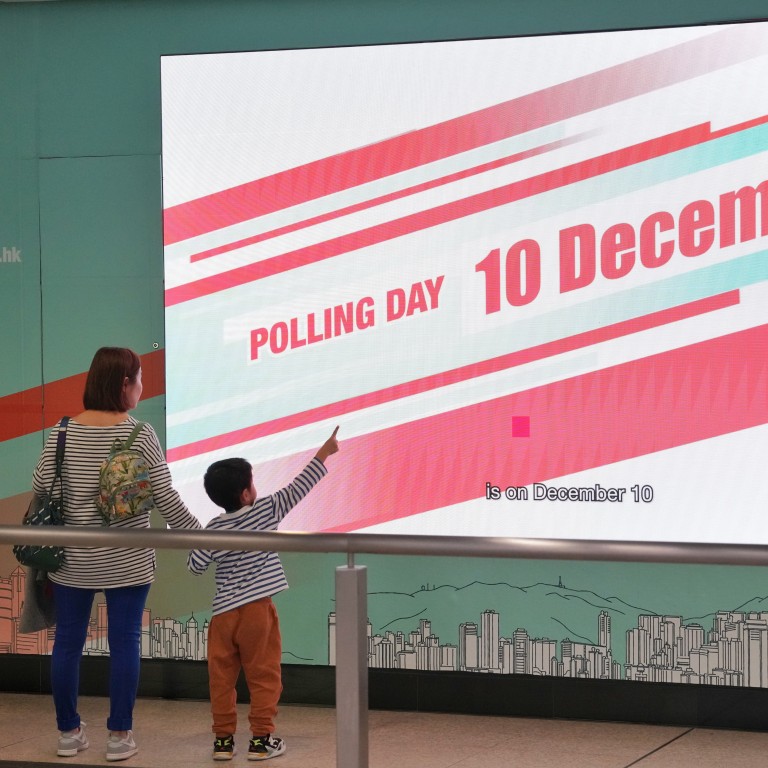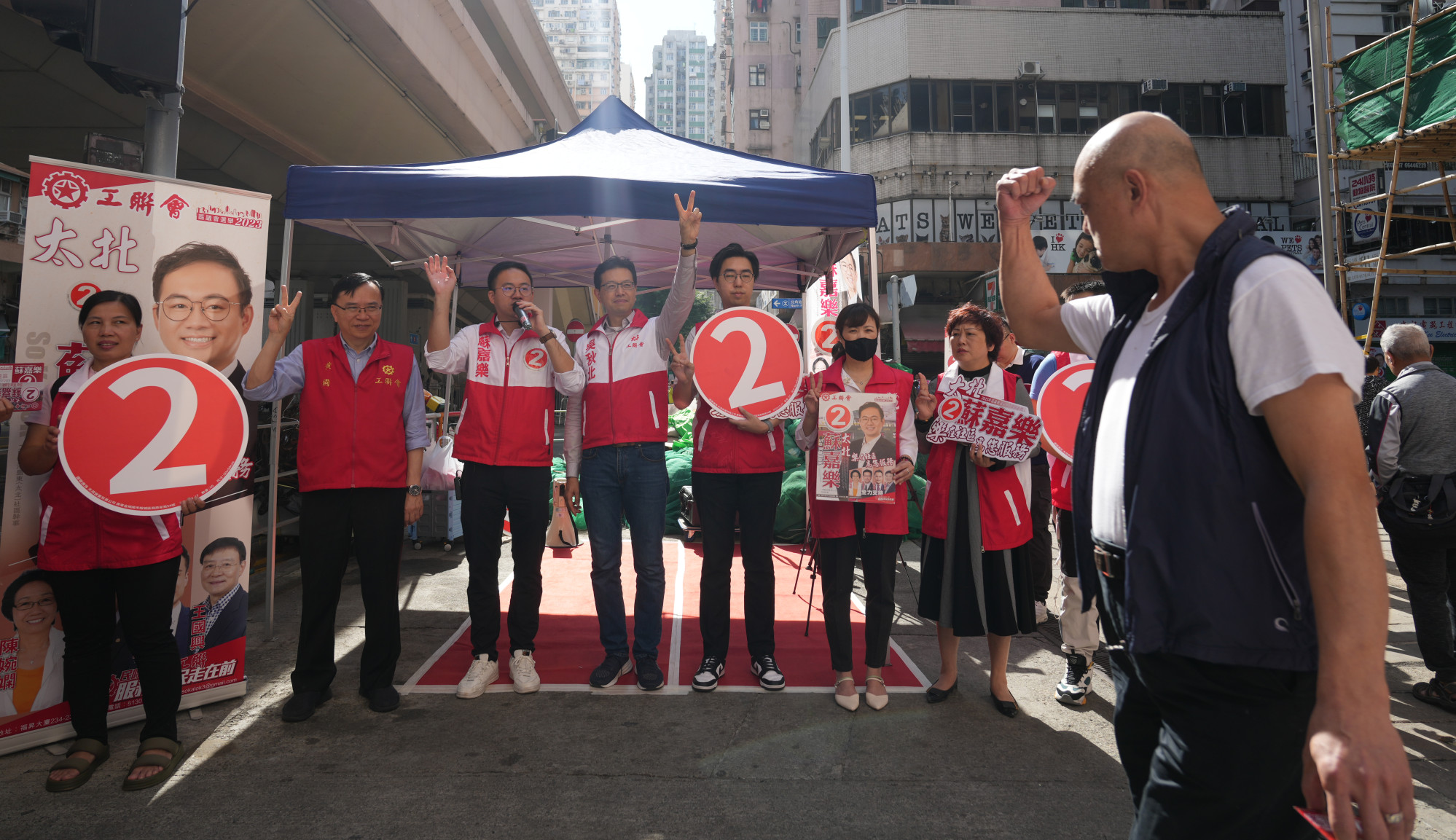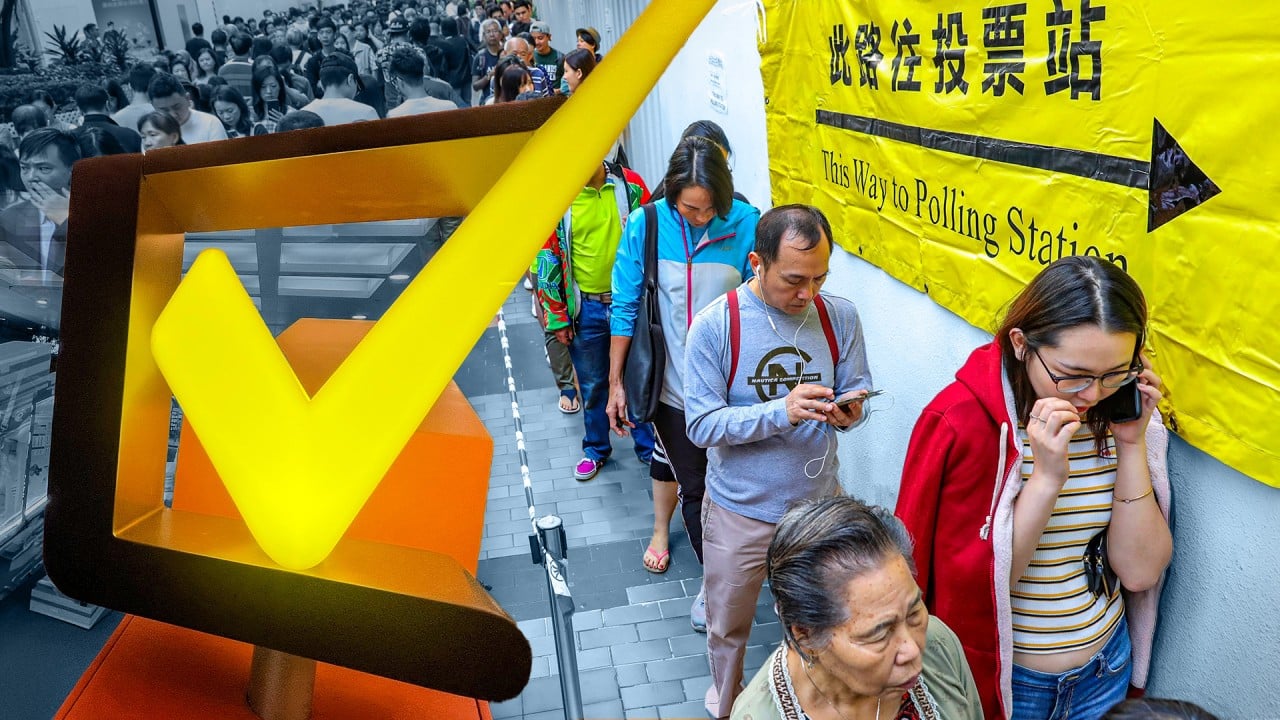
179 ‘patriots’ appointed to Hong Kong’s district councils, including dozens of defeated candidates from 2019 poll
- Many are leaders of pro-Beijing community groups and members of political advisory bodies under Chinese People’s Political Consultative Conference
- Forty-nine appointees, or 27 per cent, ran in the previous municipal-body election in 2019 and lost
Tuesday’s announcement came two days after a record low 27.54 per cent of eligible voters cast ballots for 88 directly elected seats, a turnout the city leader defended as “good” while also vowing that the revamped municipal bodies would become “more constructive”.
The rest of the 470 seats on the 18 district councils will be taken up by 27 ex officio members and 176 residents chosen by three area committees stacked with Beijing loyalists.
No opposition politicians secured enough backing to run in the election overhauled by Beijing to ensure only “patriots” could govern.

A closer look at the list of the 179 government appointees found that many were leaders of pro-Beijing community groups and members of groups under the country’s top political advisory body, the Chinese People’s Political Consultative Conference (CPPCC).
Liu Yu-hin, for instance, is a member of Gansu province’s CPPCC committee, while Paul Au Chi-on sits on the one for Foshan city.
Some were professionals such as dentist Eugene Chan Kin-keung, lawyer Donald Man Ka-ho and social worker Wong Wai-kit.
Hong Kong district council election: can the ‘patriotic’ winners deliver?
Forty-nine appointees, or 27 per cent, ran in the previous municipal-body election in 2019 and lost. The opposition camp stormed to a landslide win in that poll, in which a record 71.23 per cent of eligible voters took part.
But once the 143 members who won on Sunday but lost four years ago were included, defeated candidates made up about 40 per cent of the new councillors.
“The exceptional sentiment in 2019 contributed to our defeat,” said Wong Chun-ping, an appointee to the Kwun Tong district council who lost to a pro-democracy candidate in 2019.
“We chose to stay in the community. I believe our service was recognised by the people and the government.”
Wong said he had been contributing to the Sau Mau Ping community since 2008 after leaving his role as a former section chief of the Xinhua News Agency’s Hong Kong branch.
At least 20 appointees, over 11 per cent, were incumbent district councillors, including Jeremy Young Chit-on from the Central and Western council and Lui Tung-hai, vice-chairman of the Kwun Tong one.
“Many seats have been vacant these past two years. I anticipate a full council that is back on the right track soon,” Young said, referring to the wave of resignations and disqualifications of councillors belonging to the opposition following the imposition of the national security law in 2020.
A visual guide to Hong Kong’s 2023 district council election
The city’s largest political party, the Democratic Alliance for the Betterment and Progress of Hong Kong, secured 38 appointed seats, the most among all parties and groups. With its 109 candidates elected on Sunday, the party had 31.2 per cent of the 470 seats.
The Federation of Trade Unions added 16 appointed seats to the 27 it won earlier, making it the second most dominant party, even though its share of the total was less than 10 per cent.
Nine other appointed seats went to the New People’s Party, at least six to the Business and Professionals Alliance for Hong Kong and two to the Liberal Party.
Two representatives for ethnic minority communities were appointed: Rizwan Ullah, a Pakistani-Hongkonger who is a secondary school vice-principal, and Aruna Gurung, who represents the Nepalese community.

Dozens of members of the three area committees were also appointed as councillors. More than 27 appointees are members of the Election Committee, tasked with selecting the city’s leader.
In terms of age, about 81 per cent of the new councillors are between 40 and 64, and about 15 per cent are under 40. The median age is 47, with the youngest being 23, according to authorities.
A government spokesman said the appointed councillors were of “high calibre who love the country and Hong Kong” and they received their seats under the “principle of meritocracy”.
“All the 179 appointed members who are dedicated to serving the community will enhance the advisory and service functions of district councils,” he said.
Hong Kong’s main parties big winners in ‘patriots-only’ district council poll
Before announcing the new seats, Chief Executive John Lee Ka-chiu on Tuesday said all district council members would be subjected to a monitoring system, with details to be announced later.
Secretary for Home and Youth Affairs Alice Mak Mei-kuen would provide them with training on district governance in the following three weeks, he added.
“We have already passed the election process,” he said. “It is important we focus our attention on the outcome of the election, and the outcome will mean a constructive district council rather than what used to be a destructive one.”
In overhauling the district councils, Beijing claimed opposition councillors were more focused on political causes outside their remit than on the community work that residents expected.
Emeritus Professor John Burns, who specialises in public administration at the University of Hong Kong, expressed concerns that the new line-up would make it difficult for the revamped councils to serve as bridges between the government and the public.
Hong Kong election body under fire over computer system failure in district poll
“Some of the councillors may be known to the non-voting public as those who lost in 2019,” he said. “For me, the key issue focuses on the district councils’ function of linking the government to local communities.
“Let’s remember that the public is politically divided … Most policies need active citizen cooperation.”
But veteran political commentator Sonny Lo Shiu-hing said the previous defeat of some appointees would not affect the councils’ effectiveness.
“Instead, we should assess them in terms of their diligence and determination to improve district affairs and to influence government officials at the district level,” he said.
The councils’ new four-year term begins on January 1.
Additional reporting by Emily Hung and Wynna Wong




